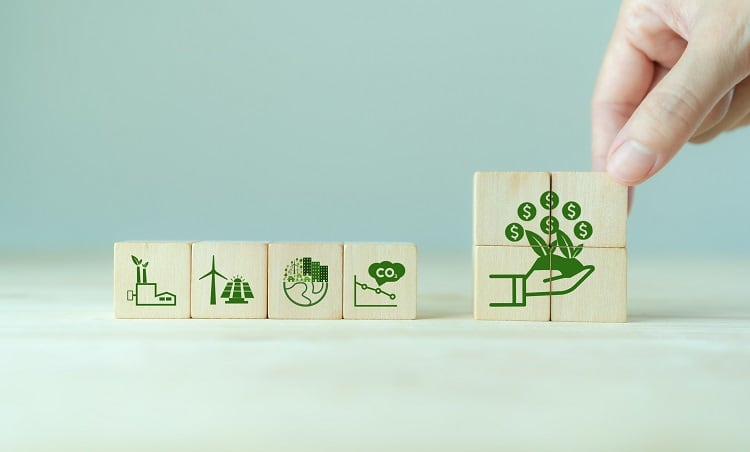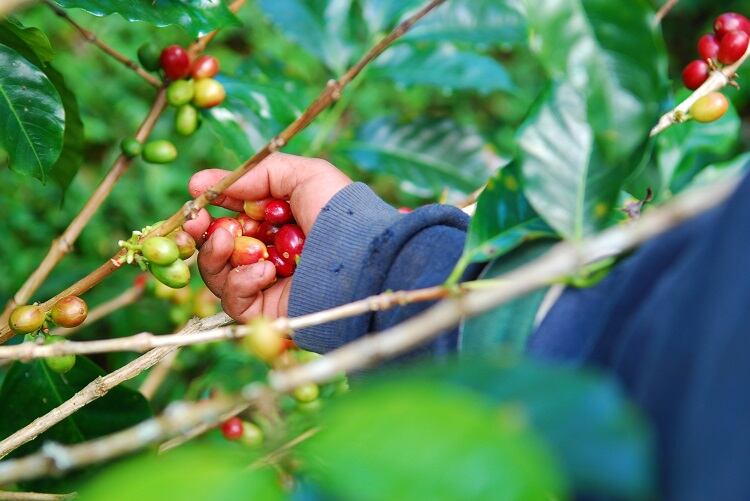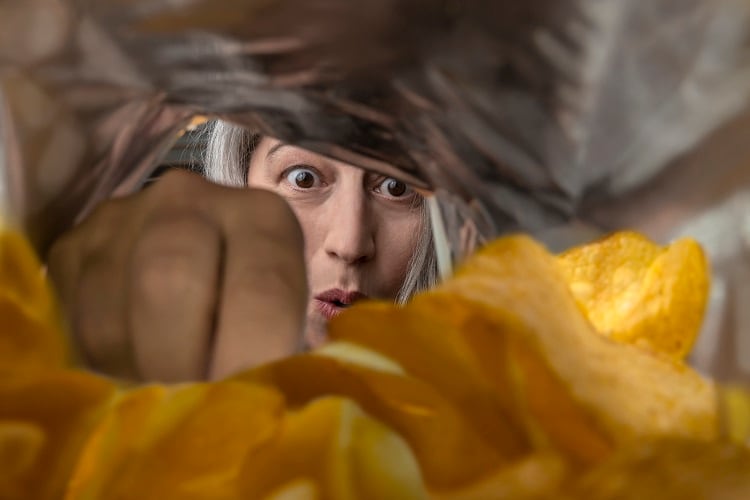One-quarter of the world’s greenhouse gas (GHG) emissions is associated with the production of food and agriculture. In an effort limit this impact, a growing number of brands – both big and small – are working to decarbonise their supply chains.
In marketing their emission reductions achievements to consumers, environmentally conscious players can make a number of carbon-related claims. Two of the most popular are ‘carbon neutral’ and ‘net-zero’.
So why might a business choose to go down the carbon neutral path, and another aim for net-zero carbon emissions? FoodNavigator hears from food and beverage start-ups, with clear visions for one or the other, to find out.
Offsetting because ‘small brands have a limited impact on supply chains’
For a brand to achieve carbon neutrality, all emissions it cannot decarbonise are neutralised through the support of environmental projects. It is expected that a carbon neutral brand will work to reduce its emissions over time.
UK start-up Prodigy Snacks is taking the offsetting route. But the impulse chocolate brand, which claims its bars are healthier and more sustainable than conventional alternatives, didn’t offset from inception.
“We tried to minimise our carbon footprint from day one,” Sameer Vaswani, CEO and founder of Prodigy told delegates at Bread & Jam’s recent Future Summit. The brand has always been plastic free, and even delayed its launch to find the co-packing partners that aligned with its plastic-free vision.
Its Scope 1 and 2 emissions are ‘very minimal’. The business has a ‘small’ office and team, which engages in recycling and backs green energy. But as Prodigy’s bars started hitting shelves in 2019, its Scope 3 emissions started the grow.
“At that point, we wanted to be carbon neutral,” recalled Vaswani. But as Prodigy Snacks products are made by co-manufacturers, rather than in-house like some of the big name FMCGs, the start-up felt somewhat restricted.
“Both in supply chain and in production of our product, we follow the classic model of co-manufacturing. And as a small business, we have limited influence on [our] supply chain, co-packers and co-producers.
“The only way for us to get to carbon neutral would have been to offset, and that’s the reason why we did it.”
Prodigy signed up with Germany-headquartered offsetting partner Climate Partner in 2021 and now supports a rainforest protection project in Madre de Dios, Peru – the country of origin for much of the cacao it uses in its bars.
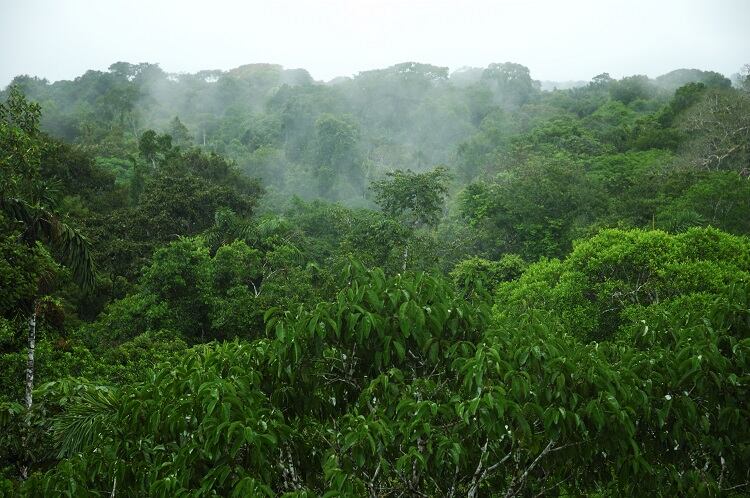
Food and wellness company Ancient + Brave is another UK start-up that has achieved carbon neutrality, via a partnership with US-headquartered Climate Neutral. Ancient + Brave has ‘always tried to be sustainable’ with its packaging and ingredients, founder Kate Price told start-ups at the Bread & Jam event. It uses organic ingredients where possible, and like Prodigy, became B-Corp certified in December of last year.
In working to minimise its carbon impact, the brand has installed an electric charging point at its office, switched to renewable energy sources, and brought product fulfilment in-house to have greater control of the process while eradicating waste. Ancient + Brave shreds used packaging to serve as a filler when sending out products. “It’s the small things that are having a total impact,” she explained.
Similarly to Prodigy, Ancient + Brave is also aware of the impact a brand its size can have on the Scope 3 emissions within its supply chain. “We’re a small company,” said Price, adding that offsetting ‘makes sense to our narrative’.
Offsetting because it makes for ‘immediate action’
Others, such as coffee and plant-based milk brand Minor Figures, are offsetting because the journey to net-zero ‘takes time’.
Minor Figures went carbon neutral in 2020, but has offset its emissions retrospectively since July 2018. Ninety-nine percent of its emissions come from Scope 3, and so while it is taking steps to reduce these (for example, by decarbonising its sea shipping), it is keen to take ‘immediate action’.
The reason Minor Figures opted for carbon offsetting, explained the start-up’s growth and sustainability manager, Thibault Guenat, is because “right now in the world, there are hot spots where the climate crisis is really impacting the lives of people, and it’s simple to support those people with immediate action.
“We are pro-offset in the sense that it takes immediate action and it has an impact, whether it’s about wildlife or local communities changing their relationship with nature, improving women’s lives or reducing household fires.”
These offsetting projects ‘have an impact’, the sustainability expert stressed, and they don’t take away from Minor Figures’ responsibility to reduce emissions, he suggested: “We do that at the same time, but that just takes time.”
Guenat continued: “These are long-term projects. If it was easy to be net-zero, then we wouldn’t be in the crisis we are today.”
Net-zero because the carbon credit market is ‘not transparent enough’
Not all sustainability-minded food and drink brands are supportive of a carbon neutral approach, however. Instead, they would rather embark on a journey towards net-zero – which is achieved when a business removes more GHGs from the atmosphere than it produces – but all in-house.
UK drinks company Belu is an interesting case. The company has been carbon neutral since 2006, and its current co-CEO Natalie Campbell joined the business in 2012. Campbell wants to relinquish the company’s carbon neutral claim, and hopes 2022 will be the last year Belu purchases carbon credits.
“We’ve looked at the carbon credit market and we’ve decided that it’s not transparent enough,” she told delegates. Instead, the business is ‘going on a net zero journey’. “We have no idea how we’re going to get there, but [we’re] going for the absolute,” she explained.
“It isn’t about offsetting. It’s about what you are trying to achieve as a business… and buying credits is not the only way to get there.”
Belu was the first company in the UK to use 100% recycled rPET and is not ‘backing out of plastic’. The start-up sees value in recycling existing plastic and will continue to work with these materials. It has also ‘light weighted’ its glass bottles to reduce emissions associated with shipping, and its glass supplier has committed to moving to 100% hydropower by 2030.
“There are lots of things that Belu has done incrementally to reduce carbon emissions. As I said, the goal is zero.”
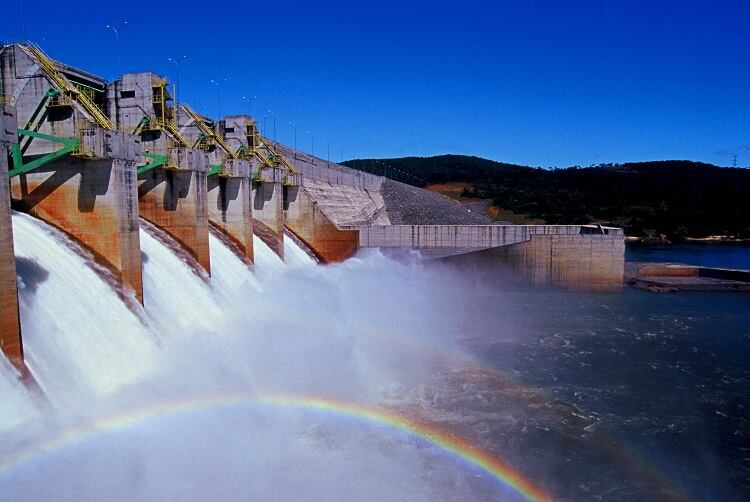
In the meantime, though, Belu is buying carbon credits and claiming carbon neutrality. Specifically, the drinks brand is supporting the development of a hydropower station in Brazil.
Elsewhere, the business is investing in ‘climate resilience’ projects, which Campbell explained ‘aren’t about offsetting’. Belu has invested £10,000 to help reduce siltation and improve water quality in the Montgomery Canal close to its water source in Wales.
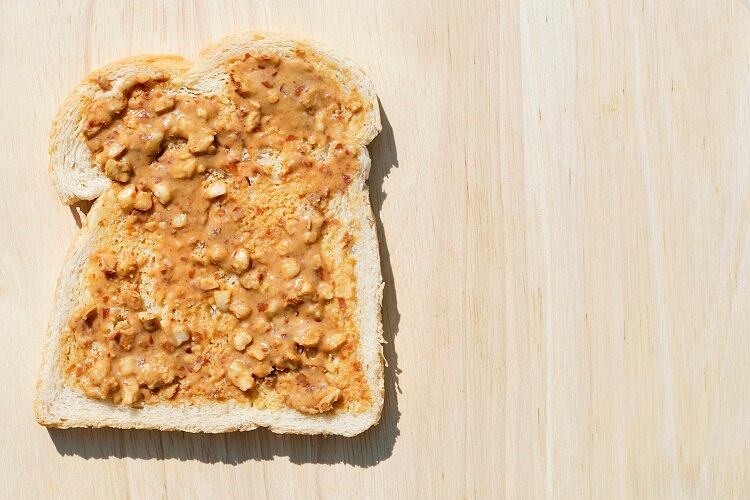
Another company that has spent a significant amount of time considering its carbon reduction strategy is nut butter brand Pip & Nut.
The start-up completed the calculation of its Scope 1, 2 and 3 carbon footprint last year via a partnership with The Carbon Trust. According to its 2020 baseline figures, Pip & Nut has a footprint of around 2,600 metric tonnes.
“We researched a lot of the different [offsetting] companies and debated whether we should [go] down the carbon neutral [pathway] first, or whether we should take the net-zero route,” founder and CEO Pip Murray revealed.
In the end, Pip & Nut opted for net-zero, and has already achieved this target in Scope 1 and 2 emissions. The net-zero route is the more expensive of the two, we were told, but Murray felt it was the right choice. “Ultimately, the job has to be done now, because we have an issue in from of us…
“To start working on [emissions] reduction felt like the right thing to do for our business and for the planet.”


